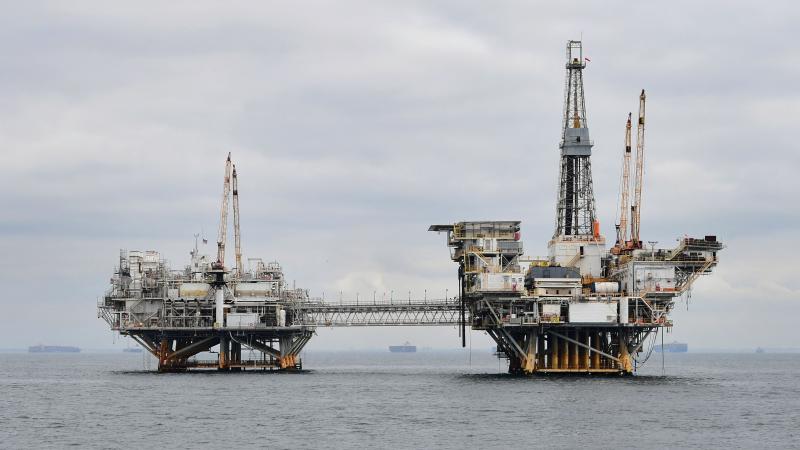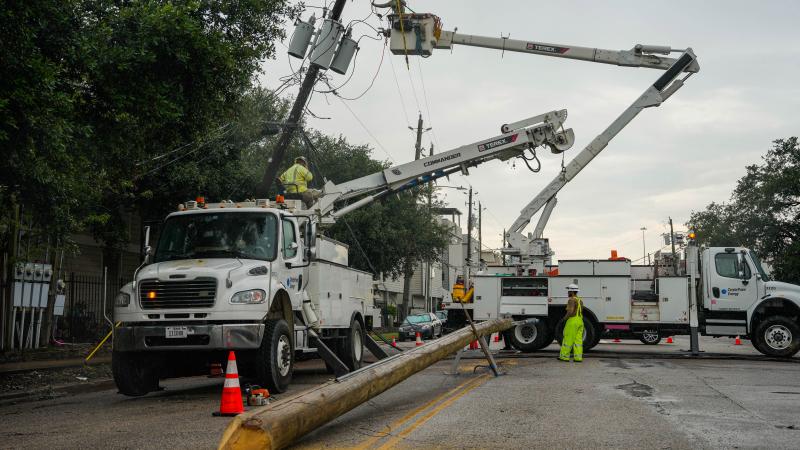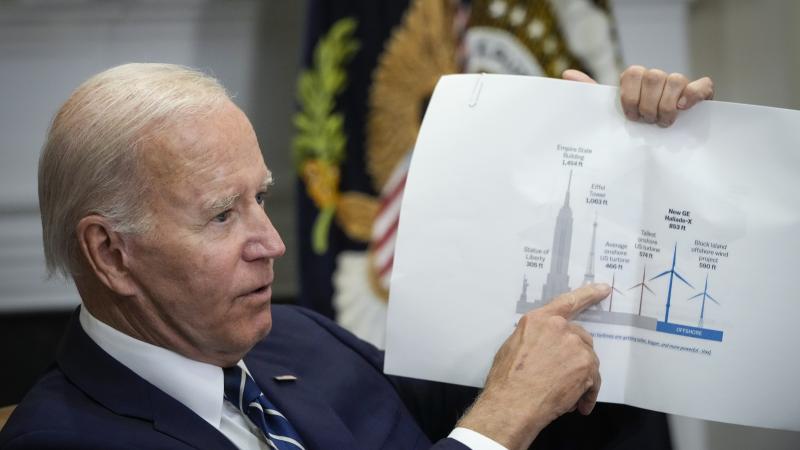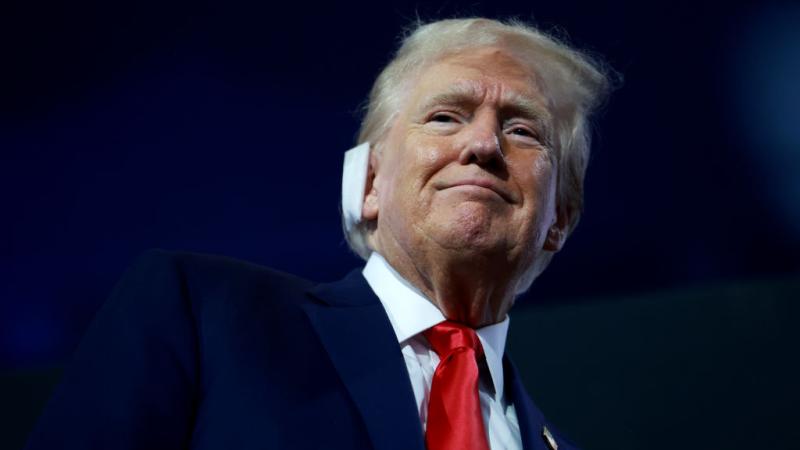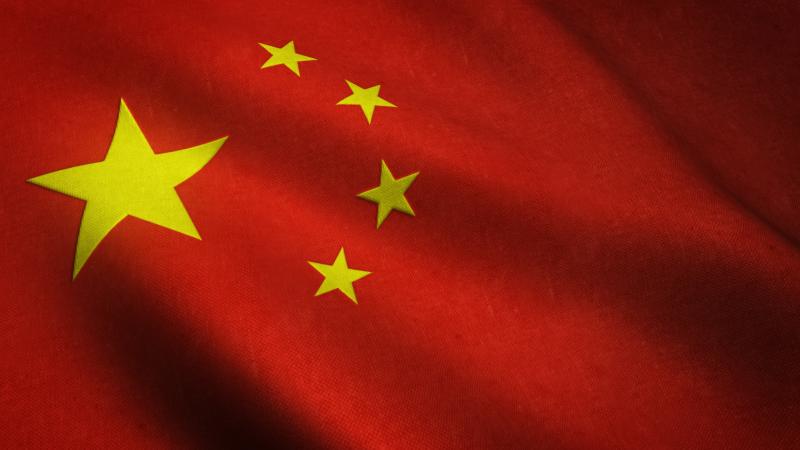Biden using wartime powers to expand green agenda raises concerns of overreach, best use amid wars
The law was utilized again during the COVID pandemic. Under its authority, Biden increased vaccine products and distributed 500 million COVID tests.
The law that granted the president of the United States sweeping powers during the COVID-19 pandemic is now being utilized to advance President Joe Biden’s climate agenda.
Last week, the Biden administration announced $169 million to advance nine projects to accelerate heat pump manufacturing – utilizing the 1950 Defense Production Act, which grants emergency authority to the president in matters considered of national security.
The act was passed at the start of the Korean War and followed the War Powers Act, which granted President Franklin D. Roosevelt the authority to control the domestic economy during World War II. This allowed the president to set wages and prices, ration consumer goods and direct national manufacturing toward the war effort.
The law was utilized again during the COVID pandemic. Under its authority, President Donald Trump ordered General Motors to produce ventilators for the federal government. It allowed him to prevent the hoarding of essential supplies and increase the production of essential health care products. Biden used the law to increase vaccine products and distribute 500 million COVID tests.
In June, the Biden administration began applying the law to its renewable energy goals, on the argument that climate change poses a national security threat that justifies an expanded authority.
“President Biden has invoked the Defense Production Act so that the U.S. can take ownership of its clean energy independence,” announced Energy Secretary Jennifer Granholm.
The announcement said the president would use the act to accelerate production of not just heat pumps, but also solar panels, transformers and electric grid components, insulation and technologies used in hydrogen production.
James Taylor, president of the Heartland Institute, told Just The News that the application of such emergency powers toward climate change at a time when multiple conflicts threaten global stability is “absolutely crazy.”
Those conflicts include the war in Ukraine, tensions between China and Taiwan and Israel's war against Hamas terrorists in Gaza – each with the potential to escalate and further entangled the U.S.
“With all this going on, Joe Biden directs emergency defense spending to have a laser focus on heat pumps and solar panels,” Taylor said.
Karen Harbert, president and CEO of the American Gas Association, declared: “We are deeply disappointed to see the Defense Production Act, which is intended as a vital tool for advancing national security against serious outside threats, being used as an instrument to advance a policy agenda contradictory to our nation’s strong energy position.”
Greenhouse gas emissions from heating and electricity account for the largest share of total emissions globally. And in the United States, they trail only transportation. For that reason, home heating has become the target of climate activists, and heat pumps are seen as another way to reduce emissions.
Heat pumps extract heat and transfer it to where it’s needed. Typically, home heat pumps extract heat from the ground and transport it into the home.
While proponents, such as the International Energy Agency, claim heat pumps are more efficient, there is some debate over whether that’s true in really cold climates.
They are also expensive to install. In the U.S., it can cost $10,000 to $20,000 to install a heat pump system in a home.
Some European countries have been pushing to get residents to switch to heat pumps, and the programs have been far from successful.
The United Kingdom provided subsidies to help lower the cost of upgrading from broilers, but the program’s utilization has been found to be “disappointingly low," which has led to a call for more subsidies.
A plan to mandate heat pumps in Germany led to a national debate. Germany’s conservative party, the Alternative für Deutschland (AFD), is one of the few political groups that question the country’s climate agenda. The party has gained considerable ground in the past year, and its oppositional stance on the heat pump issue was part of the reason.
Biden’s plan to use the DPA to accelerate heat pump manufacturing isn’t a mandate, but it isn’t clear that there’s any shortage of heat pumps that needs solving. There is a shortage of skilled workers who can install them, but with more subsidies for equipment, that problem will likely get worse.
Taylor said that the use of the DPA for the climate agenda is not only an inappropriate use of the authority it grants the president, the push for green energy has left China in control of much of the nation’s supply chains.
“It’s deliberately requiring Americans to be more reliant than ever on Chinese energy exports, which is the antithesis of protecting our national security,” he said.
The act granted the president extensive authority to respond to the COVID, but many studies now show that the government’s actions during the crisis were costly and ineffective.
While heat pumps don’t utilize natural gas, they do utilize electricity. Whether they reduce emissions depends on how the electricity is made. In the U.S. nearly 60% of electricity comes from natural gas and coal.
The Facts Inside Our Reporter's Notebook
Links
- announced $169 million for heat pump manufacturing
- passed at the start of the Korean War
- the Biden administration began applying
- Granholm said in a statement
- tensions between China and Taiwan
- the American Gas Association said
- largest share of total emissions globally
- in the United States
- Heat pumps extract heat
- some debate over whether that's true
- install a heat pump system in a home
- program's utilization has been "disappointingly low"
- question the country's climate agenda
- oppositional stance on the heat pump issue
- there's any shortage of heat pumps
- shortage of skilled workers
- China in control of much of the nation;s supply chains
- studies now show that the government's actions
- cost a lot and were ineffective
- 60% of electricity comes from natural gas and coal

